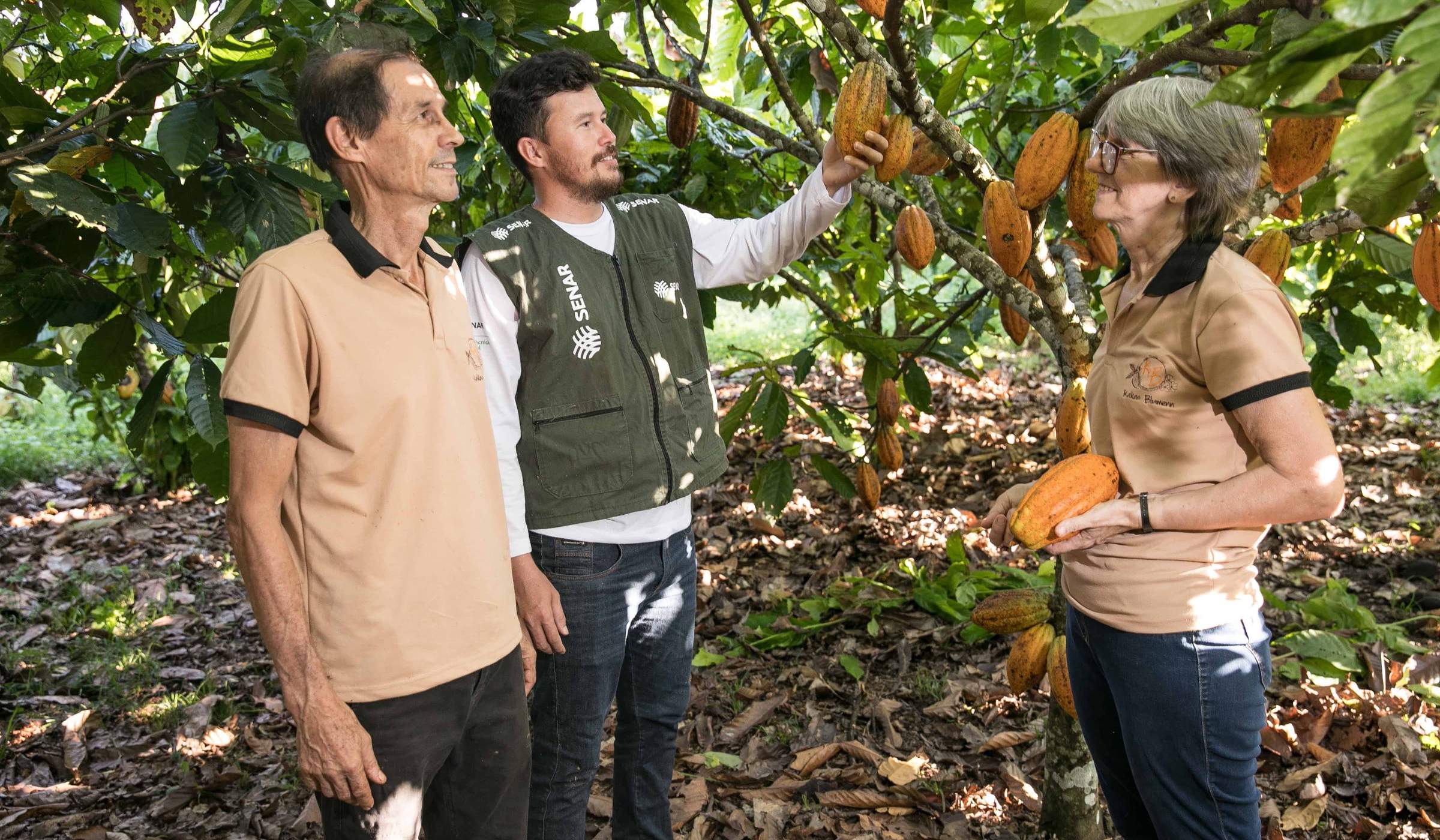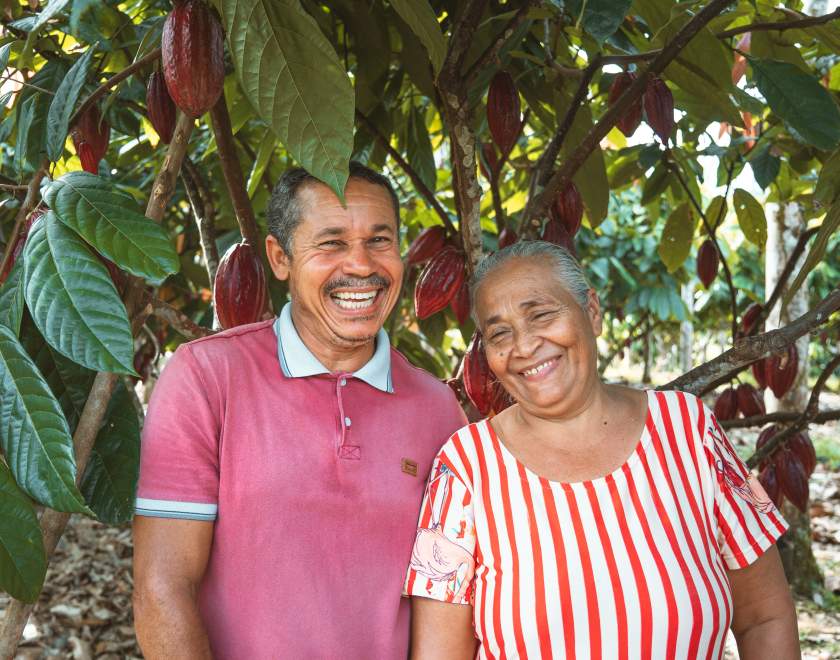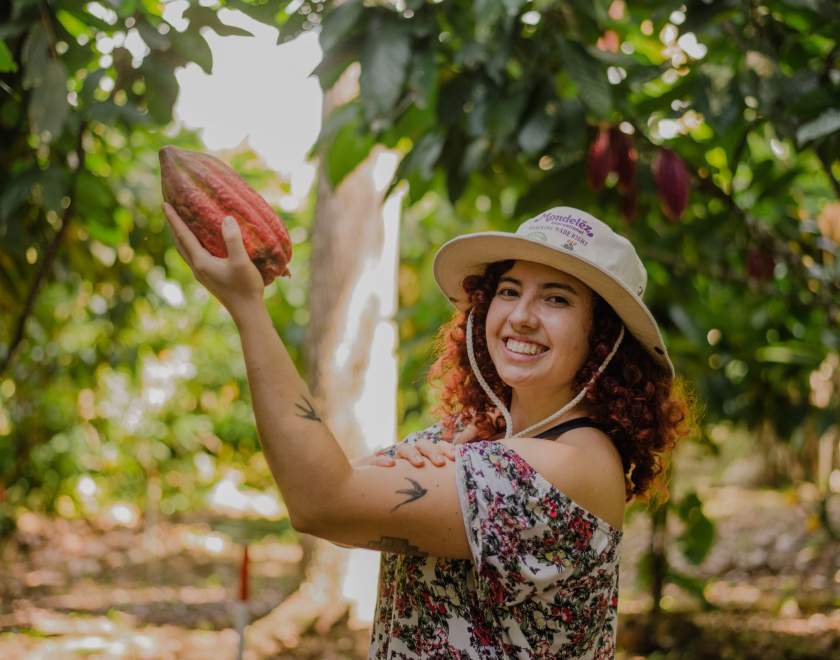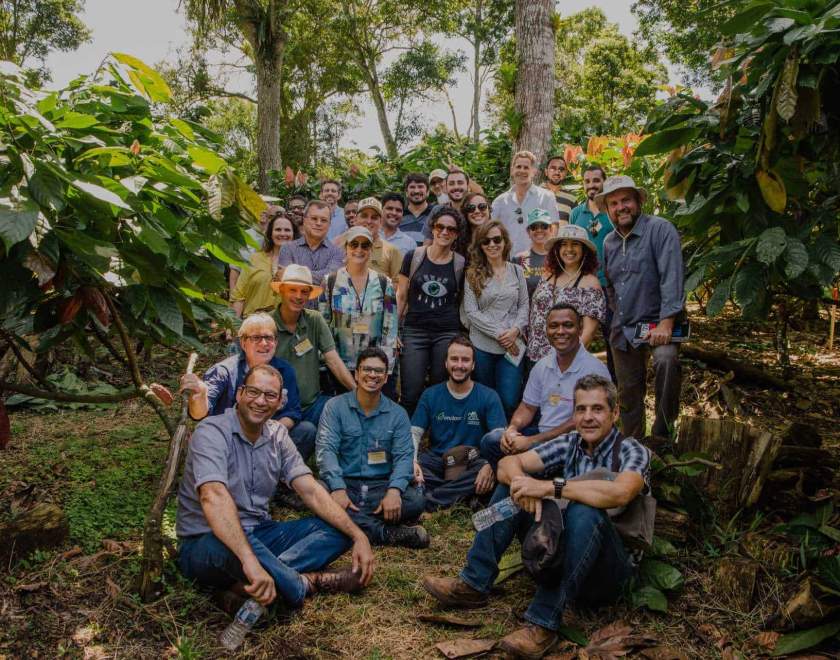
For years, low productivity has been a major issue in Brazilian cocoa with the national average of 300 kilos/hectare performing well below other cocoa producing countries.
This reflected the lack of technical assistance to growers and low adoption of basic agricultural practices, among other causes. In 2018, CocoaAction Brasil, a World Cocoa Foundation Initiative, was launched to improve the sustainability of the Brazilian cocoa supply chain.
CocoaAction Brasil works together with its members – Barry Callebaut, Cargill, Dengo, Harald, Mars, Mondelez, Nestlé, Ofi – and partners to prioritize efforts in the areas of knowledge generation, dialogue and institutional engagement, with the goal to advance sustainability in all segments of the cocoa chain. The initiative does not work alone as all efforts are built collectively, and pre-competitively, encompassing companies, governments, and civil society.
The National Rural Learning Service (SENAR), an arm of the National Confederation of Agriculture (CNA), is one of CocoaAction's partners and has driven great impact in the field. Since 2020, 4,556 producers have been reached by programs focused on cocoa farming in Bahia, Pará, Espírito Santo and Rondônia states, and another 2,231 cocoa growers are currently being benefited.
One of the highlights of the work developed by SENAR is the Technical and Management Assistance (ATeG) for cocoa farmers, a 2-year program that includes monthly visits from technicians to the farms. In order to increase productivity and growers’ incomes in a sustainable way, ATeG Cacau adopts five pillars: 1) Productive Diagnosis, 2) Strategic Planning, 3) Technological Adaptation, 4) Training and 5) Systematic Evaluation of Results.
Mr. Renato Preuss, owner of Santa Catarina Farm in Brasil Novo (Pará state), felt the impact of ATeG. "My crop had good yields, but I suffered great losses due to Black Pod disease. From 2019 to 2021, I lost around 70% of the cocoa production. Then I started receiving technical assistance from SENAR in 2021 and losses were reduced to 10%," says Preuss, who adjusted the fungicide applications according to the guidelines shared by SENAR's technician.
Bahia, one of the largest cocoa producing states in Brazil, is the birthplace of ATeG Cacau. Started in 2014 with ProSenar, ATeG Cacau has increased its reach ten-fold in recent years with 5,390 cocoa growers being assisted on a regular basis in Brazil, 3,312 farmers in Bahia alone. When CocoaAction started in 2018, only 300 cocoa growers were reached by SENAR nationally.
"ATeG Cacau’s goal is to increase cocoa productivity in the properties assisted; to improve cocoa quality; to train farmers and technicians; to foster associations, cooperativism and social organization in order to bring growers closer to credit institutions," says Gabriel Menezes, technical assistance and programs manager at SENAR Bahia.
SENAR and CocoaAction Brasil work in partnership to improve farmers' access to technical assistance, promote sustainable development, and increase productivity, with the aim of improving income and wellbeing among farmers and their families. Additionally, SENAR offers capacity building related to cocoa production, such as seedling cultivation, crop management and processing courses. A total of 7,592 cocoa farmers and workers were trained in 2022 in the states of Acre, Amapá, Bahia, Espírito Santo, Pará, Rondônia, Sergipe and São Paulo.
Despite this, reaching more of Brazil’s 93,000 cocoa producers has proven challenging. In response, SENAR Bahia, with CocoaAction Brasil and Fundo Vale launched a distance learning course, Cocoa Cultivation in Sustainable Systems, in June 2023. Already the course has more than 3,080 people enrolled throughout Brazil, a record among all online courses offered by SENAR. Among the topics covered are: cultivation systems (agroforestry, cabruca, full sun), crop implementation, management (fertilization, control of pests and diseases, pruning), harvesting, processing, commercialization and sustainable production.
In this collaborative environment, CocoaAction Brasil and SENAR teach growers the pillars of sustainable cocoa production, empowering them to increase efficiency, productivity and income and become multipliers of knowledge in their families and cocoa communities.


